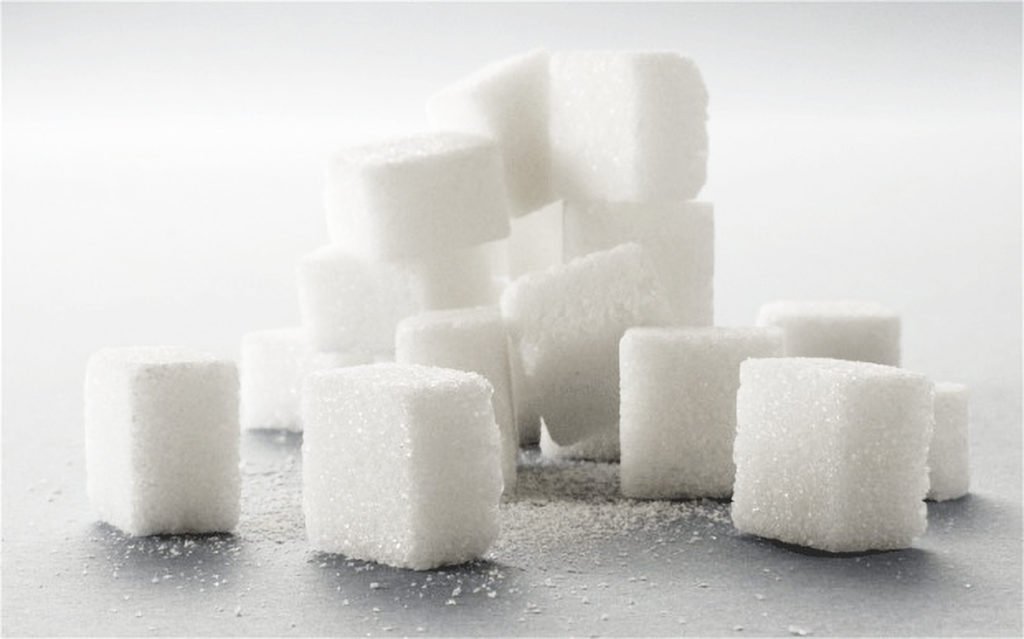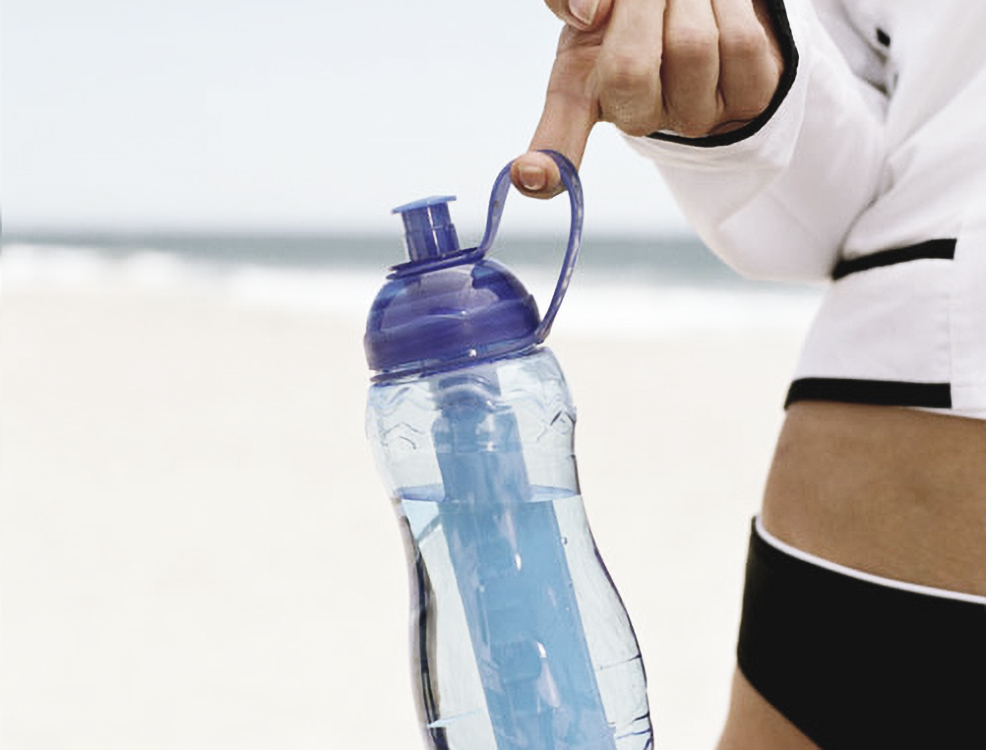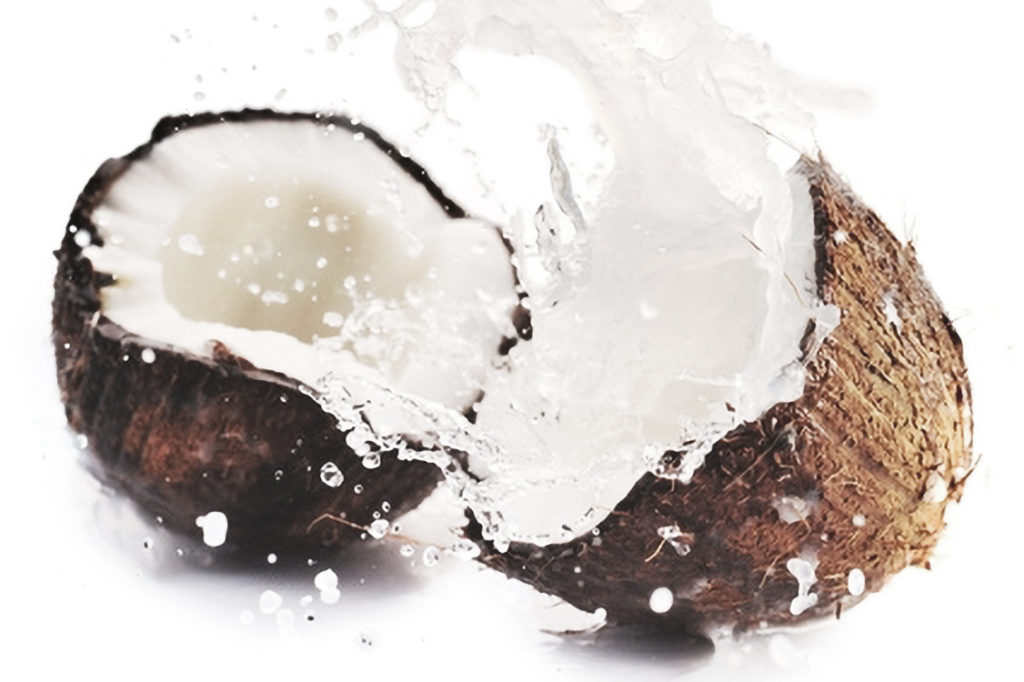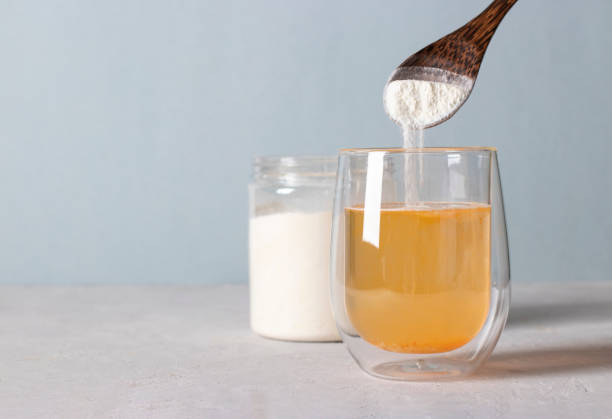Let’s talk about Gatorade and Powerade. Many of you might have that iconic orange-capped bottle stashed in your gym bag, ready to rehydrate after a serious treadmill sweat session.
And why not? Sports drinks are touted as the holy grail of workout hydration. When you’re looking to smash your workout, the drink of pro athletes seems like a natural choice. But, have you ever paused mid-gulp and wondered, “Is this neon-coloured liquid actually good for me?”
Gatorade and Powerade may be marketed as a refreshing ‘healthy drink’, but in truth, they’re more like sports supplements and unsuitable for regular consumption. Add one of these to your workout routine, and you might consume more calories than you burn.
It’s not all bad, though: there’s still a time and place for electrolyte drinks. There are also healthier alternatives on the market to keep you well-hydrated.
Let’s dive into the nitty-gritty and unpack the truth about sports drinks.
Are Gatorade & Powerade Healthy For You?
Unfortunately, Gatorade and Powerade are not healthy drinks. Yes, sports drinks contain electrolytes like sodium and potassium, but those are only ‘good for you’ if you actually need them.
Sports drinks are only recommended for endurance exercise over 90 minutes in duration, or in intense heat. During shorter workouts under normal conditions, and for everyday consumption, electrolyte drinks don’t offer any health benefits.
Many people see sports drinks as a healthy alternative to soft drinks or cordial, but this is a major mistake. Like other drinks packed with hidden calories, regularly sipping on Gatorade or Powerade can undermine your health.
Below, I’ll unpack the ingredients in sports drinks and their effects on your body – the good and the not-so-good. Read on to level up your knowledge!
Ingredients in Gatorade & Powerade
Firstly, let’s compare the two most popular sports drinks in Australia: Gatorade and Powerade.
Here are the ingredients for Gatorade in Australia:
Water, Sucrose, Glucose, Food Acids (330, 331), Monopotassium Phosphate, Sodium Chloride, Flavour, Colour (110)
And here are the ingredients for Powerade:
Water, Sucrose, Minerals (Potassium Citrate, Magnesium Sulphate, Calcium Chloride, Sodium Citrate, Sodium Chloride, Potassium Phosphate), Food Acid (330), Flavour, Colours (104, 110).
Gatorade and Powerade have similar ingredients, starting with water, sugar, and electrolytes. Gatorade contains sucrose and glucose, two different forms of sugar, while Powerade contains only sucrose. This is why you might prefer the sweetness of one brand over another!
When it comes to electrolytes, Gatorade contains sodium chloride (table salt) and potassium. Powerade offers magnesium, calcium, and potassium, with a lower sodium content.
Note that the nutrition information on the packaging can be misleading. For example, a bottle of Gatorade says it provides 13% of your daily sodium – but if you look at the fine print, this is 13% of the average adult daily intake, not the recommended (or healthy) salt intake. Big difference!
On top of the refined sugar and salt, sports drinks are also made with artificial flavours, preservatives and colours.
Note that Gatorade and Powerade have different formulas in the USA. Powerade in the States is made with pro-inflammatory high-fructose corn syrup and a few added vitamins.
Pros of Gatorade & Powerade
As a sports supplement, Gatorade or Powerade does what it says on the tin. During intense, prolonged workouts or competitive events, the combination of water, electrolytes and fast-acting carbs can improve athletic performance.
During endurance exercise (over 90 minutes in duration), hydration and energy are key to maximum performance. Heavy sweating means you lose electrolytes and water, which need to be replenished for a healthy balance. Without these minerals, your cells won’t absorb the right amount of water.
On top of maintaining a healthy electrolyte balance, the high-GI carbs in a bottle of Gatorade give you the energy to get through a marathon or intense sports match. This is why sports drink brands can say their products are scientifically proven to enhance performance.
However, Gatorade and Powerade aren’t the only options for exercise hydration. There are no secret performance-enhancing ingredients in the bottle – just water, minerals and carbs. You can also get these from natural sources, minus the refined sugars and artificial ingredients.
Cons of Gatorade & Powerade
Now we understand the benefits, let’s look at the downsides of sports drinks. The same ingredients that provide the perks make Gatorade and Powerade unhealthy for regular consumption: high salt, high sugar, and high in calories.
All of these are great if you’re slogging through a marathon, but certainly not as an everyday drink. Unless you’re working out for more than 90 minutes and need to replenish sweat losses, it’s a case of ‘wrong place, wrong time’.

Here’s a closer look at the cons of sports drinks and what they might be doing to your body:
High in Sugar & Calories
Sports drinks like Gatorade and Powerade are designed to provide fast-absorbing carbs during endurance exercise. What does this mean in plain English? They’re packed with sugar!
A 600mL sports drink contains about 670 KJ, the equivalent of 9 sugar cubes. In terms of calorie burn, that’s about an hour of jogging, swimming or skipping. If you’re aiming to lose weight, drinking a Gatorade might cancel out your workout altogether.
The amount of sugar can vary depending on the flavour, but on average, one bottle of Gatorade (600ml) contains around 36 grams. To put that into perspective, that’s almost as much sugar as a can of Coke (39.8 grams). Powerade isn’t far behind, with 34.8 grams per 600ml bottle.
Here’s a comparison of the nutrition facts for blue Gatorade, Powerade and Coke:
| Gatorade Blue Bolt (per 600ml bottle) | Powerade Mountain Blast (per 600ml bottle) | Coca-Cola Classic (per 375ml can) | |
| Energy | 618kJ | 630kj | 675kJ |
| Sugar | 36g | 34.8g | 39.8g |
| Sodium | 306mg | 168mg | 38mg |
High-GI Carbohydrates
The high-GI carbohydrates in sports drinks are rapidly absorbed into the bloodstream, causing an insulin spike. You can expect a sugar crash after this quick burst of energy, leaving you feeling sluggish and tired.
Over time, these hormone fluctuations increase your risk of insulin resistance and metabolic disorders. Overconsumption of sugar is linked to health issues such as obesity, diabetes, and heart disease.
Inflammatory Ingredients
The refined sugars and additives in sports drinks are also inflammatory damaging to exercise recovery and long-term performance. There is a snowball effect with inflammation and weight gain exacerbated by inflammatory illnesses like heart disease and diabetes.
High in Sodium
What about the electrolytes? Don’t they make sports drinks good for you? Well, not really. Unless you’re losing fluids through heavy exertion or illness, you typically get enough of these minerals from your diet.
One essential electrolyte found in sports drinks is sodium chloride – in other words, plain table salt. Australians consume almost double the recommended sodium target (four times more than our bodies need).
Too much sodium increases your risk of high blood pressure, stroke, heart disease and kidney problems. Unless you’re heavily losing fluids, the salt in Gatorade or Powerade is probably doing you more harm than good.
Acidic pH
When we’re scanning the ingredients list, we don’t often stop to think about food acids. These preserve drinks and create a tangy taste to balance out sweetness. Notably, acidic drinks are a major risk factor in tooth enamel erosion. Gatorade has a pH of 3.3 – so it’s just as acidic as juices and fizzy drinks.
Why are Sports Drinks So Popular if They’re Unhealthy?
Why are sports drinks so popular, even with non-athletes? Basically, they’re a very well-funded marketing machine!
When we see elite athletes chugging a Gatorade, we assume that makes it a healthy choice – but many athletes also eat a high-calorie or high-carb diet to match their incredible energy burn. That doesn’t mean it’s healthy for every body and every lifestyle!
It’s the same psychological trap we fall into when looking up celebrity diets or the latest muscle-building supplement. If it worked for someone else, it will work for us, right? Well, maybe – if we have the same body composition, nutrition plan, training regimen, metabolic type… the list goes on.
There’s no benefit to eating like an athlete if you spend most of the day sitting at a desk instead of practising your sprints. Healthy choices are about what your body needs and what will help you get the most out of life.
In most scenarios, sports drinks won’t do you any good, and their high sugar content means they’re best avoided.
Gatorade & Powerade: Myth vs Fact
Let’s take a look at some common myths about sports drinks below.

Does Gatorade Hydrate You Better Than Water?
The short answer is no. It’s a myth that sports drinks like Gatorade always provide ‘better hydration’ than water. Sports drinks provide electrolytes and carbohydrates as well – and these are only useful if you need them.
You might need electrolytes to combat dehydration when you’re losing minerals through endurance exercise, heavy sweating or illness. But plain old water will do just fine for the average person hitting the gym or going for a casual jog.
In fact, drinking too much Gatorade can worsen dehydration because of its high sugar content. When there’s more sugar in your bloodstream than water, your body pulls water from other sources to dilute it.
So, save the Gatorade for intense or endurance workouts over 1.5 hours. Otherwise, a big glass of water is much healthier (and a lot cheaper, too).
Is Sugar-Free Gatorade or Powerade Healthy?
Unfortunately, sugar-free and zero-calorie sports drinks aren’t a healthy choice either. Diet sports drinks replace sugar with artificial sweeteners. While this reduces calories, these low-cal substitutes are far from healthy.
Research indicates that low-calorie sweeteners change how we perceive flavours and trick the brain into disconnecting ‘sweetness’ from ‘caloric intake’. When our instincts about food are confused, we’re more likely to crave sweet foods and overindulge when we eat them.
Gatorade Sugar-Free and Powerade Zero are still full of artificial ingredients, including colours, flavours and preservatives. Along with the sweeteners, these are all pro-inflammatory ingredients that are best avoided.
Is Gatorade Good When You’re Sick?
Getting fluids and electrolytes into your system is essential if you’re dehydrated from vomiting or diarrhoea. Gatorade and Powerade aren’t the best choices, though.
Sports drinks aren’t designed for illness, so they don’t have all the right minerals, and the high sugar content in Gatorade or Powerade can actually worsen dehydration.
Gastrolyte, Hydralite or Pedialyte are a better choice for gastro illness, and they’re all available from your local pharmacy. These oral rehydration solutions are available in powdered form, premixed in bottles, or even as icy poles (perfect for fussy kids).
Now, dehydration can be dangerous, especially for children and older people. For little ones refusing water or Gastrolyte, diluted apple juice is the next best thing. If Gatorade is your only option in a pinch, dilute it heavily and get those fluids down ASAP, but don’t make it your go-to choice.
If you have a regular cold or flu (i.e. no fever, diarrhoea or vomiting), Gatorade won’t do anything special to help you recover. Instead, stay hydrated with good ol’ water, herbal tea and broth, plus plenty of nutritious immunity-boosting foods.
Is Gatorade Suitable for Kids?
Sugary drinks are especially dangerous for kids, and sports drinks are no exception. For one, we all know the magnetic appeal of brightly-coloured sugary drinks for kids!
Here are the top risks:
- High-sugar drinks are a major risk factor in childhood obesity and health risks such as type 2 diabetes.
- Acidic drinks cause lifelong tooth damage within 30 seconds of drinking, according to the University of Adelaide.
- Sugar-sweetened beverages have been linked to early puberty in young girls and a higher risk of breast cancer later in life.
- Sweet drinks encourage picky eating and set kids up for lifelong habits.
The recommendation? Keep acidic and sugary drinks to an absolute minimum for kids.
When it comes to sports drinks, it can seem almost magical that this ‘healthy’ drink tastes just as good as cordial. That’s because they’re very similar – in fact, Gatorade has more sugar and calories than the same quantity of cordial!
Here’s how Gatorade compares to Cottees fruit cup cordial:
| Gatorade Orange Ice (per 600ml bottle) | Cottees Fruit Cup Cordial (per 600ml, prepared) | |
| Energy | 618kJ | 528kJ |
| Sugar | 36g | 30g |
| Sodium | 306mg | 66mg |
| Price | $4.00 | 48c |
Now, I’m not advocating for giving kids cordial, either. But unless they’re also junior endurance athletes, sports drinks are really just overpriced lolly water.
The only recommended drink for healthy kids is water, while carbs and electrolytes should come from fruit and veggies. When your pre-schooler has caught another gastro bug, Gastrolyte or Pedialyte is better to rehydrate them.
What is a Healthy Substitute for Sports Drinks?
Sports drinks like Gatorade are undoubtedly convenient (and well-marketed), but they aren’t the only option.
Good old-fashioned water is always the best choice if you don’t need the electrolytes. Coconut water or homemade electrolyte drinks are other popular alternatives for avoiding refined sugars and additives – I’ll talk about the pros and cons of these below.
There are also other electrolyte brands on the market, many offering low-sugar, low-carb or naturally sweetened products. By shopping around, athletes can choose exactly which ingredients they want and which they’d rather get elsewhere.
Let’s unpack some of these options:

Coconut Water
Coconut water is often recommended as a healthier way to hydrate, but it has pros and cons. On the plus side, it’s 100% natural without refined sugars and additives, and contains electrolytes like potassium, magnesium and calcium.
The cons? Coconut water is particularly high in potassium, meaning it can lead to dangerous hyperkalemia (excess potassium in the blood) for individuals with impaired kidney function, or when consumed to excess. It also contains minimal sodium, the mineral with the biggest impact on exercise hydration.
For an overview, here’s how natural coconut water compares to Gatorade:
| Gatorade Orange Ice (per 100ml) | H2 Coco Pure Coconut Water (per 100ml) | |
| Energy | 103kJ | 89kJ |
| Carbohydrates | 6.0g | 5.1g |
| Sugar | 6.0g | 4.0g |
| Sodium | 51mg | 15mg |
| Potassium | 22.5mg | 200mg |
| Magnesium | 0mg | 5mg |
| Calcium | 0mg | 10mg |
| Phosphorus | 0mg | <10mg |
The high potassium and low sodium content may account for mixed results in studies – in fact, let’s take a look at what the (very limited) research says about coconut water.
A Malaysian study concluded coconut water didn’t offer statistically significant improvements to hydration compared to plain water or electrolyte drinks, but participants did find coconut water easier to stomach. A US study had the opposite finding, where nausea and bloating was highest for coconut water.
Later research into post-exercise hydration found coconut water didn’t hydrate any better than a sports drink, while another trial found sodium-enriched coconut water was more hydrating than sports drinks or water.
Confused? Aren’t we all! Studies have been quite small so far – usually groups of eight to 12 people – so we’ll have to stay tuned for future research into coconut water.
If consuming coconut water before or after endurance exercise, make sure you’re replenishing your sodium levels as well, and don’t overdo it. A small tetra pack of coconut water (330ml) also contains about 16 grams of carbohydrates, which is excellent for energy during long workouts, but means it shouldn’t be guzzled like water.
Always check the ingredients list when buying coconut water, too, since some brands have added sweeteners or flavours. If you can get a fresh young coconut at your nearest grocers, there’s nothing like it!
Homemade Electrolyte Drink
Did you know you can make your own electrolyte drink? There’s no big secret to it – on a basic level, you can recreate sports drinks by combining water, fruit juice and a pinch of salt. For a full range of electrolytes – including potassium, calcium and magnesium – you can buy these in powdered form.
If you’re compensating for heavy fluid loss, it’s crucial to get the proper ratio of fluids and electrolytes, so it’s safest to use a medically-backed rehydration product (or consult with a sports nutrition professional).
Remember that Gatorade only contains sodium and potassium, so if your DIY recipe uses calcium and magnesium, you may already be whipping up a more well-rounded electrolyte drink!

Low-Sugar & Natural Electrolyte Drinks
If you prefer the convenience of premixed drinks, there are plenty of other electrolyte products on the market, from specialty sports products to low-sugar and keto-friendly options. These typically use natural sweeteners like stevia or monk fruit extract and real fruit flavours for taste.
Look for brands that prioritise using whole food ingredients and avoid artificial additives. You can even purchase electrolyte drops and powders without any sugars or flavourings, ready to add to your choice of beverage.
Key Takeaways
So, is Gatorade good for you? The answer is not a simple yes or no – it’s more about understanding what your body actually needs.
If you’re running a marathon or participating in a rigorous sports competition, feel free to reach for that Powerade to replenish lost electrolytes. You know your body best, and you probably have your hydration routine down pat – so don’t let me stop you!
For the average person, though, sports drinks just aren’t necessary. Unless you’re losing enough fluids to need electrolytes, sticking to water and a balanced diet is much better for you.
Here’s to making smarter hydration choices!




Recent Comments